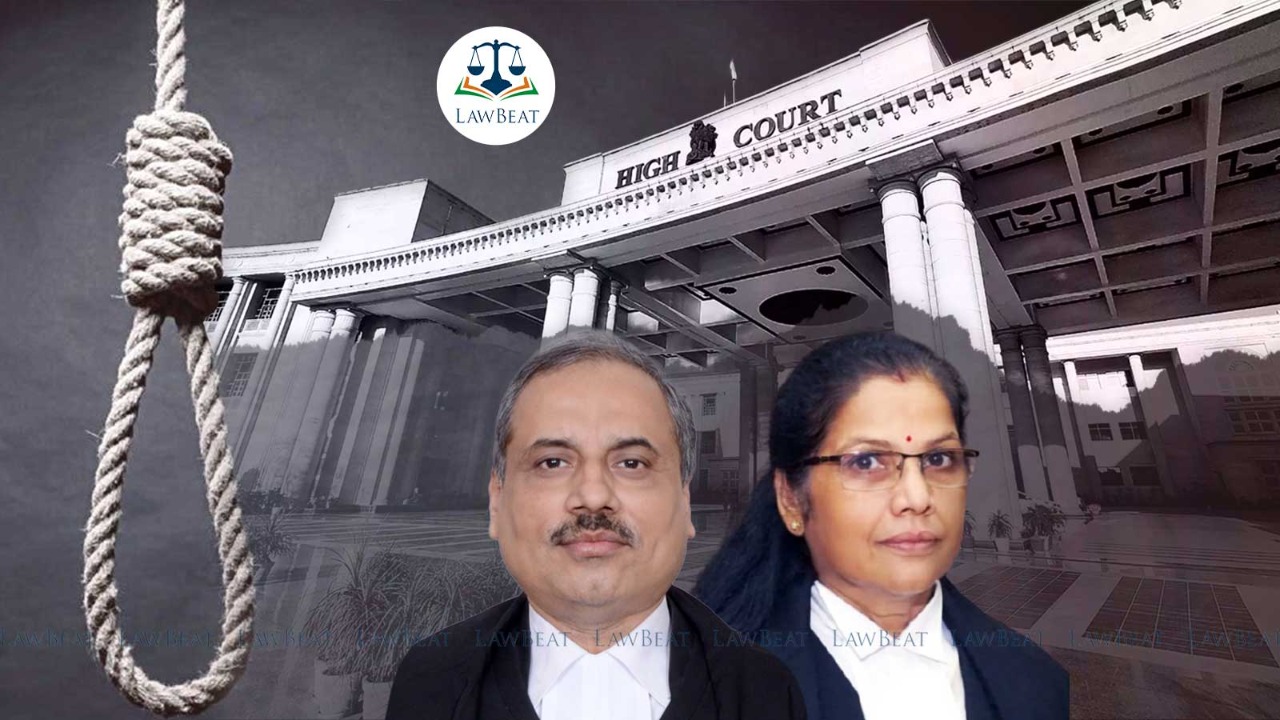Allahabad High Court confirms death penalty awarded to man for murdering six including wife, three children

The convict had first killed his wife and children with an axe and then had repeatedly assaulted his neighbour and her children with the same axe while saying that she used to intervene a lot.
The Allahabad High Court recently confirmed the death sentence awarded by the trial court to a man who brutally murdered six persons including his wife and three children.
Admittedly, the convict had an illicit relationship with his bhabhi (sister-in-law) and his wife objected to this, on account of which, scuffles often took place between them, and one of his neighbours used to intervene.
The bench of Justice Ramesh Sinha and Justice Saroj Yadav held, "We concur with the finding of Trial Court that six persons were murdered by convict/appellant Sarvan in most brutal, grotesque, diabolical and dastardly manner arousing indignation and abhorrence of society which calls for an exemplary punishment".
Court observed that there was nothing on record to show that the deceased aggravated the situation so as to arise sudden and grave passion on the part of the convict to commit such a dastardly crime and also the convict did not show any remorse or repentance at any point of time for his act.
"He slayed six lives to quench his thirst. The entire incident is extremely revolting and shocks the collective conscience of the community. Murders were committed in gruesome, merciless and brutal manner," the court stated.
Therefore, keeping in view the mitigating and aggravating factors and the fact that there was no report regarding any chance of rehabilitation of the convict received from the Jail Authorities, the division bench opined that the punishment of life imprisonment, in this case, would neither serve the ends of justice nor will be an appropriate punishment.
Accordingly, holding the case to be in the category of "rarest of rare" cases, court confirmed the death punishment imposed upon the convict for the offences under Sections 302, 323 and 201 of the Indian Penal Code.
As per the prosecution case, one of the convict's neighbours lodged a written statement before the police that the convict and his wife used to quarrel a lot over convict's illicit relationship with his sister-in-law. On April 25, 2009, an altercation took place between them.
The informant stated that he heard the convict shouting that he would not leave his wife and their children alive after which the informant's wife went to convict's house to intervene.
As per the informant, the convict first killed his wife and children with an axe and then assaulted informant's wife with the same axe saying that she intervenes a lot. When informant's children tried to save their mother, the convict attacked them too causing grave injuries as a result of which, informant's son died later on.
Court noted that the medical evidence fully corroborated with the evidence of eyewitnesses with regard to the antemortem injuries sustained by six deceased persons.
To reach its conclusion, court examined the available 'aggravating' and 'mitigating' circumstances in the case and found that the aggravating circumstances outweigh the mitigating circumstances.
Apart from that, court affirmed the conviction of the sister-in-law under Section 201 IPC, who, with an intention of saving the convict from legal had hidden the weapon of assault.
Case Title: State of U.P. v. Sarvan and two other connected matters
